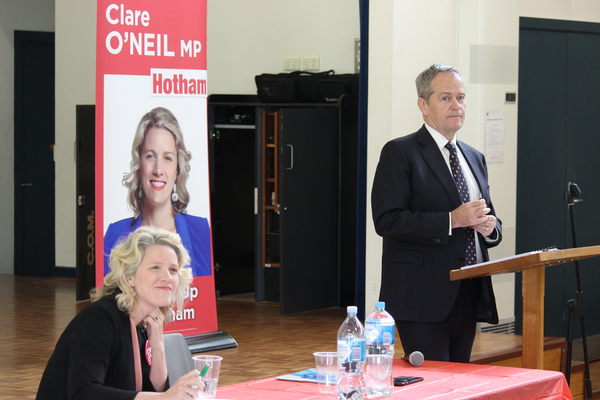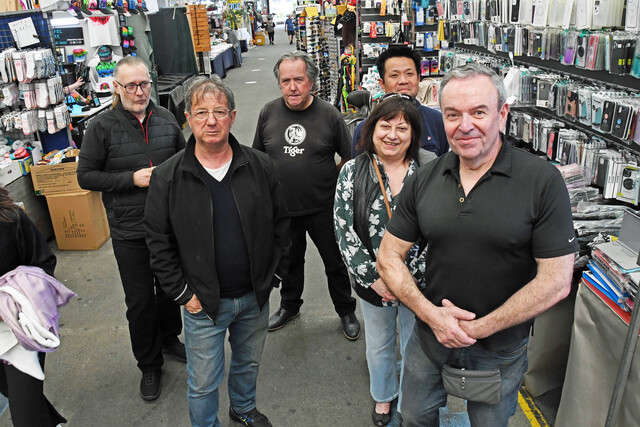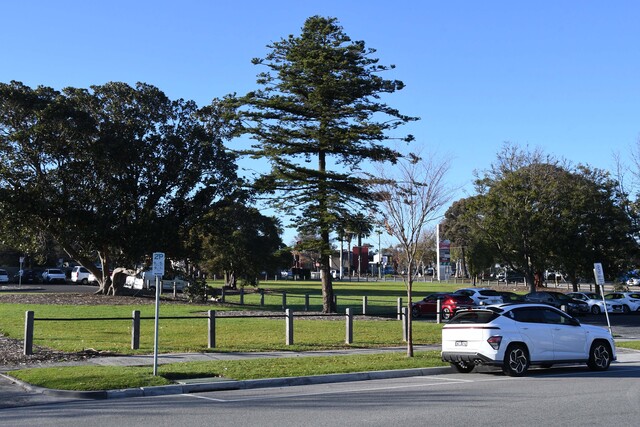Cheryl Hilton, the carer of non-verbal 21-year-old twin step-daughters Tegan and Glenys Saffigna, can’t tell you why the National Disability Insurance Agency eventually said yes.
But after 18 months of fighting for a critically-needed stairlift at their home, finally the NDIA relented.
No explanation given, except to say sorry they had to wait so long, Ms Hilton said.
In the meantime she is thankful that Tegan and Glenys haven’t been injured as a result.
She herself has fallen once while manually lifting Tegan, who has cerebral palsy and wafer-thin bones, up and down the stairs outside the house.
A fall for Tegan would be obviously more catastrophic.
On 13 November – the day before the NDIA’s call – Ms Hilton and 130 other carers and people with a disability packed out a forum in Mulgrave.
It was hosted by Hotham Labor MP Clare O’Neil and Bill Shorten, once aspirant PM who is now opposition NDIS spokesperson.
Ms O’Neil had also been long pressing the NDIA to approve the stairlift for the twins and their carers. She promised to try again after the forum.
Overall the NDIS has been a positive thing, Ms Hilton says. The extra funding for physios, speech therapy, outings and other support has led to significant progress for the twins.
“The sad thing is all of the obstacles. It’s so hard to navigate for those without the time or ability or confidence.
“There’s many who don’t take up the fight but they shouldn’t have to.”
The first obstacle came after the twins were assessed for their initial funding plan.
They had been underfunded on a $105,000 state disability package, which didn’t cover essentials like speech therapy, occupational therapy, day programs and physio.
Yet under the NDIS – which promised no one would be worse off – they were initially offered just $70,000 each.
“It’s quite traumatic to think about it,” Ms Hilton says.
“My husband and I thought one of us would have to give up our part-time job.”
Eventually she got in contact with the planner who made the assessment.
“I was almost hysterical. She admitted that she hadn’t read any of the documentation we’d provided – the medical information on their needs, all supported by professional people.”
The decision was successfully reviewed.
Ms Hilton reflected on the plights of scores of other families at the Mulgrave forum.
“To hear all the stories and the stress they bear, it was nearly unbearable.”
Ms O’Neil said the “huge” turnout showed how people had significant problems with the NDIS.
The scheme had potential for people to “lead better quality lives” but was under-resourced by the Federal Government.
A cap on NDIA staff numbers was leading to longer waiting times for people on the scheme.
“It’s not a smooth and simple process.
“It’s creaking and bureaucratic, rather than being dynamic and giving people a choice.”







